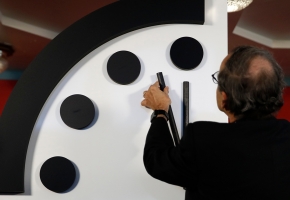Polluted air cuts global life expectancy by two years

Microscopic air pollution caused mostly by burning fossil fuels shortens lives worldwide by more than two years, researchers reported.
Across South Asia, the average person would live five years longer if levels of fine particulate matter met World Health Organization standards, according to a report from the University of Chicago's Energy Policy Institute.
PM2.5 pollution – 2.5 microns across or less, roughly the diameter of a human hair –penetrates deep into the lungs and enters the bloodstream. In 2013, the United Nations classified it as a cancer-causing agent.
The WHO says PM2.5 density in the air should not top 15 microgrammes per cubic meter in any 24-hour period, or 5 mcg/m3 averaged across an entire year.
Faced with mounting evidence of damaging health impacts, the WHO tightened these standards last year, the first change since establishing air quality guidance in 2005.
"Clean air pays back in additional years of life for people across the world," lead research Crista Hasenkopf and colleagues said in the Air Quality Life Index report.
"Permanently reducing global air pollution to meet the WHO's guidelines would add 2.2 years onto average life expectancy”.
Compared to other causes of premature death, the impact of PM2.5 pollution is comparable to smoking tobacco, and more than three times that of alcohol use.
Source: Phys.org
Image: Shutterstock







